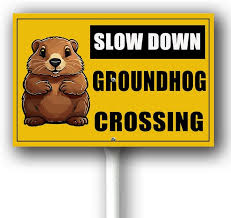
Introduction to Groundhog Day
Groundhog Day, celebrated every February 2nd, holds a unique place in Canadian culture. This whimsical tradition, where a groundhog’s shadow determines the length of winter, captivates many Canadians each year. Its significance extends beyond mere superstition, serving as a cultural touchstone that unites communities across the nation in anticipation of spring.
The Tradition of Groundhog Day
The origins of Groundhog Day date back to the early 1900s in the town of Wiarton, Ontario, where Wiarton Willie, the local groundhog, emerged as the star of the festivities. According to folklore, if Willie sees his shadow on this day, it predicts six more weeks of winter; if not, an early spring is anticipated. This playful interaction with nature has evolved into a celebrated event, attracting thousands of visitors who gather to witness Willie’s prediction.
Celebrations Across Canada
While Wiarton Willie is perhaps the most famous, several other regions celebrate their own groundhogs, each with its unique customs. For instance, in Nova Scotia, Shubenacadie Sam makes his prediction, while Ontario hosts several events featuring local groundhogs. The festivities often include winter fairs, music, and local crafts, underscoring the holiday’s community spirit. The blend of folklore with communal joy highlights Canada’s diversity and commitment to preserving cultural traditions.
Impact of Groundhog Day
Groundhog Day has grown to encompass more than just weather predictions. It represents community bonding, the excitement of winter activities, and the hope of a warmer season ahead. Schools often incorporate lessons about the tradition, teaching children about animal behavior, ecosystems, and cultural heritage.
Conclusion and Future of Groundhog Day in Canada
As Groundhog Day gains popularity, it continues to evolve, fostering connections within communities and educating future generations about Canadian folklore. With climate change influencing weather patterns, some speculate the role of groundhogs may evolve over time, but the enduring spirit of Groundhog Day as a celebration of community and nature will likely keep this tradition alive. Groundhog Day provides not only entertainment but also a sense of anticipation and connection as Canadians look forward to spring, celebrating their shared culture and heritage.



